BNP out to make AL judiciary's opponent
The Awami League yesterday alleged that the BNP with ill intentions was trying to make it an opponent of the judiciary.
“None should do politics over the Supreme Court verdict. The judiciary should be kept above party and opinion. The judiciary is the last resort of people. So there should not be any politics or difference over it, but they [BNP] are doing it,” AL Presidium Member Abdul Matin Khasru said at a press conference at the party's Dhanmondi office in the capital.
“Supreme Court is not our opponent, it's the BNP. I read a statement today [yesterday] and watched TV and found that the party with ill intentions was trying to make us opponent of the judiciary,” he added.
The apex court on August 1 released the full text of its verdict, scrapping the 16th amendment to the constitution that had given parliament the power to remove SC judges for misconduct or incapacity.
Eight days after the release of the full verdict, the AL yesterday came up with its formal reaction.
Khasru said the verdict given by the SC cannot be a matter of a debate and politics.
But the AL was witnessing that some BNP leaders, including Mirza Fakhrul Islam Alamgir and Moudud Ahmed, were giving provocative speeches and they were out to do politics over the verdict, which was regrettable, he said.
“We are trying to clarify that they are giving different explanations by distorting the verdict intentionally to serve their political interest,” said Khasru, also a former law minister.
The BNP is saying that the government should step down. However, no mention was made in the verdict that the government is illegal. The court should take action against them, he said.
AL Law Affairs Secretary SM Rezaul Karim said, “We are reviewing the scrapping of the 16th constitutional amendment. The party is working on whether it should file a review petition or seek exclusion of part of the verdict.”
The SC in its 16th amendment verdict observed, “No nation-no country is made of or by one person.”
It also said if parliament is not mature enough, it would be a suicidal attempt to give the House the power of removing judges of the higher judiciary.
Referring to these observations, Rezaul said even the Razakars of 1971 Liberation War period would admit that the country was liberated under the leadership of Bangabandhu Sheikh Mujibur Rahman.
These were unexpected and unwarranted, he said, adding that these were not related to the subject matter of the case.
The lawyer alleged that the BNP distorted the judgment and the SC should take suo moto action against its leaders.
Khasru said no country in the world witnessed such a debate over a SC verdict.
Meanwhile, Commerce Minister Tofail Ahmed has said those who want to “bring an unconstitutional force to state power” are trying to demean the politicians.
“Who wants to undermine the politicians? It is those who want military rule and bring an unelected government to power,” he told a discussion organised by Bangladesh Medical Association in the city's BMA Auditorium.
“Those who termed the incumbent parliament immature are themselves immature. Those who are now sitting in judges' seats are immature. They don't have any right to raise any question about the incumbent parliament.”
The senior AL leader said there is a provision in the constitution to give legitimacy to an uncontested election. “If holding an uncontested election in a particular constituency is legal, then holding such elections in many constituencies is also legal.”
Regarding the SC's observation in the verdict that the country was not liberated under the leadership of an individual, the minister said, “I want to ask who other than Bangabandhu led the country's Liberation War. Those who are holding the judges' offices today had once worked with us as activists. Now they [judges] are mature and we are immature.”
Criticising the judges, Tofail said some “unexpected observations” were included in the verdict only to undermine politicians.
Justice Khairul terms verdict immature
Law Commission Chairman ABM Khairul Haque yesterday strongly criticised the Supreme Court verdict in the case over the 16th amendment to the constitution, terming it misconceived, irrelevant and immature.
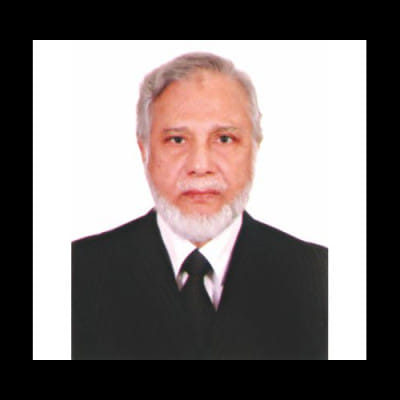
The SC made its observations overlooking “the main issue of the case”, he told a press conference at his office in the capital.
Some constitutional provisions were misinterpreted in the verdict, noted Khairul, also a former chief justice.
The constitution needs to be amended for restoring the Supreme Judicial Council (SJC), as the provision of the SJC was not there in the constitution, he pointed out.
“Is the chief justice a headmaster and are other judges his students that he [CJ] has to control them,” he asked.
The Law Commission chief said the judges are independent under Article 94(4) of the constitution.
“Article 1 of the constitution talks about a people's republic, but this verdict is taking the country towards a judges' republic.”
Khairul said it was reported in the media that the SC sent a letter to the Anti-Corruption Commission, asking it to stop an enquiry about a retired judge.
“How can we rely on them [SJC members]? We cannot rely on the Supreme Judicial Council. We have confusion as transparency may not be there.
“The Supreme Court will correct the members of parliament if they make mistakes, but where will we go if the Supreme Court judges do any wrong.”
He said the SC judgment undermined the parliament members.
In the SC verdict, the author judge (chief justice) said the current parliament is “immature” and also made derogatory remarks about its members, he added.
“If the chief justice says the current parliament is immature, I have to say the Supreme Court judges are immature as they unnecessarily used derogatory and unparliamentarily language about the parliament members in the verdict.
“Why irrelevant observations should be made in the apex court verdict. We feel that it should not have been done.”
Khairul said it's not right that a constitutional organisation would term another constitutional organisation immature.
The author judge even observed that the parliament members should ponder whether they are qualified enough to be lawmakers, he mentioned.
Khairul, however, said parliament can enact a law but cannot bring any changes to the basic structure of the constitution. “Independence of the judiciary is a basic structure of the constitution, which cannot be curbed.
“We have noted that a few judges made derogatory comments about parliament before delivering the verdict. Therefore, it can be said there was a plan for delivering such a verdict long before the hearing in the case began.”
Khairul said he didn't agree with the opinion that independence of the judiciary would be curbed in the absence of the SJC.
“The original constitution of 1972 empowered parliament to remove [SC] judges. At that time, we knew that the judiciary was independent. But now it is being said that there will be no independence of the judiciary without the Supreme Judicial Council.
“I think the Supreme Judicial Council doesn't have much to do with independence of the judiciary.”
The former chief justice said people are the owners of the republic and parliament represents the sovereign people. “When everyone is accountable to parliament, there is no reason why judges should be an exception to this.”
Khairul said that once the judgment of a court is delivered, people have the right to criticise it.
“Nobody is above criticism. Even the Supreme Court is not above criticism.”
He wondered where people would go if the SC makes mistakes.
Khairul said there is no legal bar to criticising judgments from one's perspective, and that the Law Commission organised the press conference to express its impartial opinion.
He further said he went through the 799-page SC verdict and found it was made lengthy unnecessarily by making illogical and irrelevant comments.
On August 1, the SC released the full verdict in which Chief Justice Surendra Kumar Sinha observed that the amendment giving the president powers to have control over lower courts violates the basic structure of the constitution.
In the verdict, the apex court made observations on different issues including democracy, politics, martial law, the Election Commission, good governance, corruption and independence of the judiciary.
The SJC was restored through the SC verdict, and it held its first meeting on August 6.
Govt considers the judiciary its rival: Fakhrul
BNP Secretary General Mirza Fakhrul Islam Alamgir yesterday alleged that the government took the judiciary as its opponent following the release of the full verdict in the 16th constitutional amendment case.
“It has become clear through the statements of the finance minister and the health minister that the government has taken the judiciary as its opponent,” he said.
The BNP leader was addressing a discussion organised by Jatiyatabadi Ainjibi Forum in Old Dhaka.
Fakhrul said people's opinion was reflected in the SC's observation.
“There was a discussion in the cabinet meeting after the release of the full verdict. I don't know whether the way the ministers talked in the meeting was tantamount to contempt of court.”
Terming the verdict a historic one, he said the judgment clearly said about the current political situation of the country. “It was their [Awami League] responsibility to protect democracy. But they have become a monster and destroying everything.”
Speaking at another programme, Jatiya Samajtantrik Dal President ASM Abdur Rob said mobilising public opinion against the judiciary and announcing war against the court was a dreadful act.
“Those who are in the government have already committed contempt of court. If anyone files a case, it will be accepted. It is dangerous to threaten the judiciary. Its consequences would be beyond imagination,” he told a discussion hosted by Nagorik Oikya at the Jatiya Press Club.
Eminent jurist Shahdeen Malik said, “It has been proved through this judgment that the judiciary is independent and it still has a strong mentality to pronounce a verdict independently.”
He observed the future of article 70 of the constitution was not very bright.
Mahmudur Rahman Manna, convener of Nagorik Oikya, alleged that the government was trying to “bring the full verdict to the street” which was a dangerous intention.
“The judiciary didn't give any verdict against the government. The judiciary tried to give a directive considering all the aspects since the country's independence and it should be followed.”
He also said the way the AL men were reacting to the verdict was dangerous. “We think right now all the political and social organisations and people should thank the judiciary for the historic verdict and stand by it.”

 For all latest news, follow The Daily Star's Google News channel.
For all latest news, follow The Daily Star's Google News channel. 

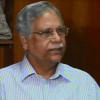
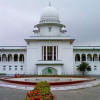
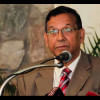
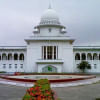



Comments